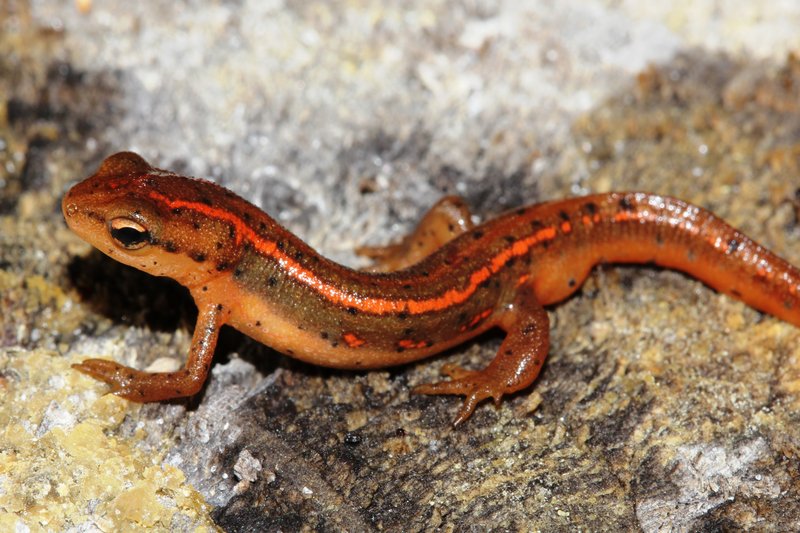For Immediate Release, December 12, 2024
|
Contact: |
Chelsea Stewart-Fusek, (971) 717-6425, [email protected] |
Lawsuit Aims to Protect Imperiled Striped Newt in Florida, Georgia
WASHINGTON— The Center for Biological Diversity today sued the U.S. Fish and Wildlife Service for denying Endangered Species Act protection for the striped newt in 2018. The rare newt lives in Florida and Georgia.
“These precious newts are disappearing before our eyes, but they have a real chance at recovering if they’re protected under the Endangered Species Act,” said Chelsea Stewart-Fusek, an attorney at the Center. “Striped newts are fascinating amphibians who need both wetlands and long-leaf pine forests to complete their life cycle. We’re losing both of those ecosystems right now, so federal officials need to act quickly.”
The Service determined more than a decade ago that striped newts warrant protection, but the agency placed the species on a wait list. Then the Service suddenly reversed course and denied the newt protection altogether.
The newt’s habitat has been severely degraded and fragmented by logging, agriculture, fire suppression and urban development. About 98% of their fire-dependent longleaf pine habitat has already been lost. On top of these threats, unusually prolonged droughts caused by climate change dry out the newt’s breeding ponds. The species is declining even on public lands that are protected from development.
“The threats facing the striped newt compound one another and are worsening as climate change accelerates,” said Stewart-Fusek. “Protecting these shy amphibians means protecting and restoring the special places that both newts and people need.”
Wetlands are not only biodiversity hotspots, but also filter drinking water and provide resilience to flooding, drought and wildfire. Since European settlement, more than 50% of the United States’ wetlands have been destroyed. A 2024 report found that the rate of wetland loss has accelerated by 50% since 2009, with freshwater forested wetlands experiencing the greatest losses.

The Center for Biological Diversity is a national, nonprofit conservation organization with more than 1.7 million members and online activists dedicated to the protection of endangered species and wild places.

